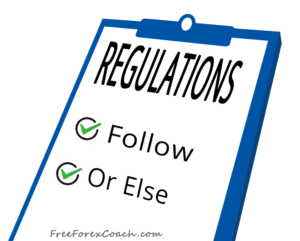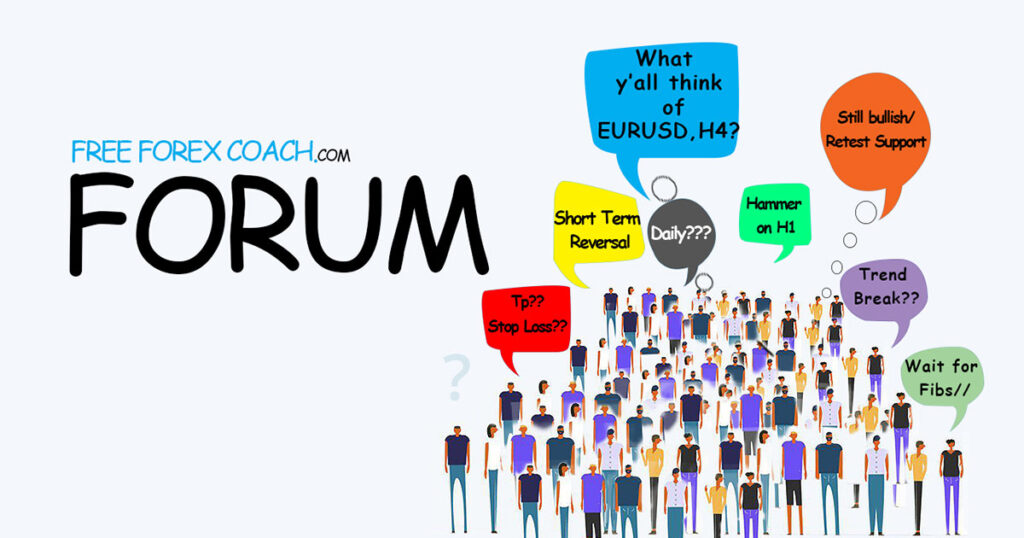Forex Regulatory Agencies are setup by Countries to govern, monitor and regulate financial bodies. Regulatory agencies also protect investor and traders from fraud, manipulation and theft.
The Forex market is the largest financial market on the globe world with the U.S having the biggest market.
Because it involves many participants from different countries in the world, it is very difficult to control Forex scams.

Therefore most countries came up with regulatory agencies to monitor financial bodies.
One of the most important thing traders should look at when choosing a Forex broker is the regulatory status of the broker.
You should know whether your broker is regulated and under which regulatory body.
We shall therefore look at the major forex regulatory bodies by country which we think are the most relevant to Forex
major forex Regulatory Agencies Around the World
Here are the most common and popular Forex regulatory agencies that you will come across in the United States and from other countries.
U.S. Regulatory Agencies
There are two major regulatory agencies in the United States.
- Commodities Futures Trade Commission (CFTC)
- National Futures Association (NFA)
Commodity Futures Trading Commission (CFTC)
The CFTC is an independent regulatory body in the US, created in 1974.
Its mission is to protect the market users and the public from fraud, manipulation and abusive practices related to sale of commodities, futures and options.
Since futures include currency markets, they as well protect the Forex traders.
CFTC, puts in place a set of proper regulation and police to protect investors and traders in the Forex market and other financial markets
Before you open a trading account with a broker, it is therefore important to verify that the broker is licensed and regulated by agency.
CFTC has gone through many modifications since 1947.
It’s aim is to improve trading conditions and develop an equitable playing ground for all market participants.
It consists of five commissioners. The commissioners are appointed by the president with the advice and consent of the senate.
Last but not least, the CFTC is also responsible for publishing the Commitments of Traders Report COT every Tuesday
FYI; Commodities Futures Trade Commission website(http://www.cftc.gov/About/HistoryoftheCFTC/index.html
National Futures Association (NFA)
National Futures Association (NFA) was created in 1982 to regulate the U.S. futures markets.
It is an independent association from the government therefore does not depend on the taxes of the American citizens
It is the second largest agency in the US and acts as an extension of the CFTC to oversee the compliance of Forex brokers to financial standards.
All its activities are monitored by the CFTC the government agency responsible for regulating the U.S. futures industry.
For a company to operate in the futures markets in the U.S, it must first comply as a member of the National Futures Association, NFA
In case you want to deal with brokers from the US, they must be a member of the National Futures Association and also regulated by CFTC.
The official website for NFA is, https://www.nfa.futures.org/about/index.html
Next, we shall now look at the other forex regulatory Agencies from other countries.
In case you have complaints or looking for a regulated broker, below are some of the agencies you should look at.
regulatory Agencies outside the US
1. The Financial Conduct Authority( FCA) and Prudential Regulation Authority (PRA)
Financial Conduct Authority( FCA) is the regulatory body in the United Kingdom.
It is responsible for regulating, supervising, investigating and enforcing regulations that govern financial markets.
The agency operates independently of the country’s government and it is funded by firms it oversees including the Forex industry.
For a broker to offer Forex trading services, they must adhere to the guidelines issued by the FCA or else they won’t operate.
Similarly, the prudential Regulation Authority works closely with the Bank of England to promote UK financial stability.
If you are in UK and you have a complaint about your broker, you can run here for help.
In addition, you can also follow them on their website (https://www.fca.org.uk/about/the-fca to learn more on how they work.
2. Finanstilsynet Denmark
The Danish FSA was formed in January 1988. It regulates and supervises financial activities in Denmark.
Finanstilsynet Denmark (https://en.wikipedia.org/wiki/Financial_Supervisory_Authority_(Denmark)
3. Swiss Federal Department of Finance(FDF) and FINMA. Switzerland
The FDF oversees of financial bodies in Switzerland.
However, the Swiss Financial Market Supervisory Authority (FINMA) is the Switzerland’s main regulatory body.
FINMA functions and is financially independent of the federal finance department.
Swiss Federal Department of Finance. Switzerland (https://www.efd.admin.ch/efd/en/home.html
4. Association Romande des Intermediaries Financiers
This also works as FINMA .
It is also a regulatory body from Switzerland but not as big as FINMA.
Association Romande des Intermediaries Financiers http://www.arif.ch/-EN-
5. Hong Kong Securities and Futures commission
When in Hong Kong or dealing with brokers from there, SFC will help you to know your rights as a trader.
The Hong Kong Securities and Futures Commission (SFC) of course regulates financial markets in Hong Kong.
It monitors all futures and securities, options and Forex in Hong Kong.
You can learn more from their websites; https://en.wikipedia.org/wiki/Securities_and_Futures Commission http://www.sfc.hk/web/EN/about-the-sfc/our-role/
6. Australian Securities and Investments Commission
The Australian Securities and Investments Commission (ASIC ) regulates companies, financial markets, and financial service organizations in Australia.
ASIC is responsible for overseeing the forex and the financial markets in Australia. If you are trading forex in Australia, this is responsible for issuing license to forex brokers.
Australian Securities and Investments Commission https://www.australia.gov.au/directories/australia/asic
7. Cyprus Securities and Exchange Commission (CYSEC)
CySEC (Cyprus Securities Exchange Commission) is the main regulatory financial agency of Cyprus.
It functions under the umbrella of the European MiFID regulations.
This is because, all Forex brokers operating in the European Union must comply with the Markets in Financial Instruments Directive (MiFID).
Lastly, CySEC is known for its light regulations. As a result, it has attracted many foreign Forex companies.
For more details, check out its website; https://www.forextraders.com/cysec/
https://en.wikipedia.org/wiki/Cyprus_Securities_and_Exchange_ Commission
In conclusion
The Forex Regulatory Agencies ensure that brokers follow certain rules of conduct.
They provide an ethical, transparent, and safe trading environment for their customers.
In other wards, regulations seek to limit brokers capacity to scam, manipulate and fraud traders or investors, regardless of what deceptive ways they use.
It is therefore very important to understand every aspect of the broker’s regulations before you open a live trading account with them.
This may be your safest measure to avoid Forex scams.
How procrastination can affect your trading success?
Procrastination to trade is when your trading set up confirms and you hesitate to take trade. Or your trade show all failing signals and you hesitate to close trade to cut losses. Also, in cases, where you sometimes hesitate to take profit because you want to...
- Oh, bother! No topics were found here.



